- Home
- Mario Puzo
The Sicilian Page 12
The Sicilian Read online
Page 12
And they functioned superbly for the American Army. Only a minimum of Occupation troops had to be left behind to preserve order over the conquered people. As the war continued on the mainland, there was no sabotage behind American lines, no spies roamed. Black-marketing by the common people was held to a minimum. The Colonel received a special medal and promotion to Brigadier General.
Don Croce’s Mafia mayors enforced the smuggling laws with the utmost severity and the carabinieri patrolled the roads and mountain bypasses ceaselessly. It was like old times. Don Croce gave orders to both. Government inspectors made sure that stubborn farmers turned in their grain and olives and grapes to government warehouses at officially set prices—these, of course, to be rationed out to the people of Sicily. To ensure this, Don Croce requested and received the loan of American Army trucks to transport these foodstuffs to the starving cities of Palermo, Monreale, and Trapani, to Syracuse and Catania, and even to Naples on the mainland. The Americans marveled at Don Croce’s efficiency and awarded him written commendations for his services to the armed forces of the United States.
But Don Croce could not eat these commendations, he could not even read them for his pleasure, as he was illiterate. The backslappings of Colonel La Ponto did not fill his enormous belly. Don Croce, not trusting to the gratitude of the Americans or the blessings given by God for virtue, was determined that his many good works in the service of humanity and democracy be rewarded. So these cram-filled American trucks, their drivers armed with official road passes signed by the Colonel, rolled to quite different destinations designated by Don Croce. They unloaded at the Don’s own personal warehouses located in small towns like Montelepre, Villaba and Partinico. Then Don Croce and his colleagues sold them for fifty times their official prices on the flourishing black market. So he cemented his relationships with the most powerful leaders of the resurgent Mafia. For Don Croce believed that greediness was the greatest of all human failings, and he shared his profits freely.
He was more than generous. Colonel La Ponto received magnificent presents of antique statues, paintings and ancient jewelry. It was the Don’s pleasure. The officers and men of the American Military Government detachment were like sons to him, and like any doting father he showered them with gifts. These men, specially chosen for their understanding of Italian character and culture, since many of them were of Sicilian origin, returned his love. They signed special travel passes, they maintained the trucks assigned to Don Croce with particular care. They went to his parties where they met good Sicilian girls and became entwined in the loving warmth which is the other side of the Sicilian character. Taken into these Sicilian families, fed the familiar food of their emigrant mothers, many of them wooed Mafioso daughters.
Don Croce Malo had everything in position to resume his former power. Mafia chiefs all over Sicily were in his debt. He controlled the artesian wells that sold water to the population of the island at prices that would give him a good profit. He created the monopolies on foodstuffs; he levied a tax on every market stall that sold fruit, every butcher shop that sold meat, the cafés with their coffee bars, and even the strolling bands of musicians. Since the only source of gasoline was the American Army, he controlled that also. He furnished overseers to the huge estates of the nobility, and in time planned to buy their lands at cheap prices. He was on the road to establishing the kind of power he wielded before Mussolini took over Italy. He was determined to become rich again. In the coming years he would, as the saying goes, put Sicily through his olive press.
Only one thing truly troubled Don Croce. His only son had gone mad with the eccentric desire to do good deeds. His brother, Father Benjamino, could have no family. The Don had no one of his blood to whom to bequeath his empire. He had no trusted warrior chieftain, young and tied by blood, to be a mailed fist when his velvet glove proved unpersuasive.
The Don’s people had already marked young Salvatore Guiliano, and the Abbot Manfredi had confirmed his potential. Now more legends of this young boy’s exploits were sweeping Sicily. The Don smelled an answer to his only problem.
CHAPTER 8
THE MORNING AFTER their escape from Montelepre, Turi Guiliano and Aspanu Pisciotta bathed in a swift-running stream behind their cave on Monte d’Ora. They took their guns to the edge of the cliff and spread out a blanket to enjoy the pink-streaked dawn.
The Grotta Bianca was a long cave that ended in a mass of boulders that reached to the ceiling, or almost. When they were little boys Turi and Aspanu had managed to squeeze over those boulders and discover a passage that ran right through to the other side of the mountain. It had existed before Christ, dug by the army of Spartacus, hiding from Roman legions.
Far below, tiny as a toy village, lay Montelepre. The many paths that led to their cliff were thin chalky worms which clung to the sides of the mountains. One by one the gray stone houses of Montelepre were turned to gold by the rising sun.
The morning air was clear, the prickly pears on the ground were cool and sweet and Turi picked one up and bit into it carefully to freshen his mouth. In a few hours the heat of the sun would turn them into juiceless cottony balls. Gecko lizards, with huge balloonlike heads on tiny insect legs, crawled over his hand, but they were harmless despite their obscenely frightening appearance. He flicked them aside.
While Aspanu cleaned the guns, Turi watched the town below. His naked eye picked out tiny black dots, people going into the countryside to work their little pieces of land. He tried to locate his own house. Long ago he and Aspanu had flown the flags of Sicily and America from that roof. Gleefully cunning children, they had accepted praise as patriots, but the real reason was to keep the house under observation while they roamed the tops of the nearby mountains—a reassuring link to the adult world.
Suddenly he remembered something that had happened ten years ago. The Fascist officials of the village had ordered them to take down the American flag from the Guiliano roof. The two boys had been so enraged that they had taken down both flags, the American and the Sicilian. Then they had taken the flags to their secret hideout, the Grotta Bianca, and buried the flags near the wall of boulders.
Guiliano said to Pisciotta, “Keep an eye on those trails,” and went into the cave. Even after ten years, Guiliano remembered exactly where they had buried the flags, in the right-hand corner where the boulders met the earth. They had dug in the dirt underneath the boulder, then packed the earth back over it.
A mat of thin, slimy, green-black moss had grown over the spot. Guiliano dug into it with his boot and then used a small stone as a pick. In a matter of minutes the flags were uncovered. The American flag was a slimy mess of rags, but they had wrapped the Sicilian flag inside the American one, and the shielded one had survived. Guiliano flipped it open, the scarlet and gold colors as bold as when he was a child. There was not even a hole in it. He brought it outside and said to Pisciotta, laughing, “Do you remember this, Aspanu?”
Pisciotta stared at the flag. Then he, too, laughed, but in a more excited way. “It’s fate,” he shouted and jumped up and snatched the flag from Guiliano’s hand. He went to the cliff’s edge and waved it at the town below. They did not even have to speak to each other. Guiliano tore off a sapling that grew on the cliff face. They dug a hole and propped the sapling up with stones, then attached the flag to the sapling so that it flew free for all the world to see. Finally, they sat on the cliff edge to wait.
It was midday before they saw anything and then it was just a lone man riding a donkey on the dusty path that led to their cliff.
They watched for another hour and then as the donkey entered the mountain range and took the upward path, Pisciotta said, “Damn, that rider is smaller than his donkey. It must be your godfather, Adonis.”
Guiliano recognized the contempt in Pisciotta’s voice. Pisciotta—so slender, so dapper, so well formed—had a horror of physical deformity. His tubercular lungs, which sometimes bloodied his mouth, disgusted him, not because of the danger to his life, b
ut because it marred what he thought of as his beauty. Sicilians have a fondness for giving people nicknames related to their physical failings or abnormalities, and once a friend had called Pisciotta “Paper Lungs.” Pisciotta had tried to stab him with his pocketknife. Only Guiliano’s strength had prevented murder.
Guiliano ran down the mountainside for a few miles and hid behind a huge granite rock. It was one of his childhood games with Aspanu. He waited for Adonis to pass him on the trail, then he stepped out from his sheltering rock and called, “Stand where you are.” He pointed his lupara.
Again it was the childhood game. Adonis turned slowly in such a way that he shielded the drawing of his pistol. But Guiliano, laughing, had stepped behind the sheltering rock; only the barrel of his lupara gleamed in the sunlight.
Guiliano called, “Godfather, it’s Turi,” and waited until Adonis put his gun back into his waistband and shrugged out of his knapsack. Then Guiliano lowered his lupara and stepped into the open. Guiliano knew that Hector Adonis always had trouble dismounting because of his short legs and he wanted to help him. But when he appeared on the path the Professor slid down quickly, and they embraced. They walked up to the cliff, Guiliano leading the donkey.
“Well, young man, you’ve burned your bridges,” Hector Adonis said in his professional voice. “Two more dead policemen after last night. It’s no longer a joke.”
When they arrived on the cliff face and Pisciotta greeted him, Adonis said, “As soon as I saw the Sicilian flag I knew you were up here.”
Pisciotta grinned and said good-humoredly, “Turi and myself and this mountain have seceded from Italy.”
Hector Adonis gave him a sharp look. That self-centeredness of youth, stating its own supreme importance.
“The whole town has seen your flag,” Adonis said. “Including the Maresciallo of the carabinieri. They will be coming up to take it down.”
Pisciotta said impudently, “Always the schoolmaster giving knowledge. They’re welcome to our flag, but that is all they’ll find here. We’re safe at night. It would be a miracle for the carabinieri to come out of their barracks after dark.”
Adonis ignored him and unpacked the sack on his donkey. He gave Guiliano a pair of powerful binoculars and a first-aid kit, a clean shirt, some underwear, a knitted sweater, a shaving kit with his father’s straight-edge razor and six bars of soap. “You will need these up here,” he said.
Guiliano was delighted with the field glasses. They headed the list of things he needed to acquire in the next few weeks. He knew his mother had hoarded the soap over the last year.
In a separate package were a huge hunk of grainy cheese speckled with pepper, a loaf of bread, and two large round cakes that were really bread stuffed with prosciutto ham and mozzarella cheese and crowned with hard-boiled eggs.
Adonis said, “La Venera sent you the cakes. She says she always baked them for her husband when he was in the mountains. You can live on one for a week.”
Pisciotta smiled slyly and said, “The older they get the better the taste.”
The two young men sat in the grass and tore off pieces of the bread. Pisciotta used his knife to cut off hunks of the cheese. The grass around them was alive with insects, so they put the food sack on top of a granite boulder. They drank water from a clear stream that ran only a hundred feet below them. Then they rested where they could see over the cliff.
Hector Adonis sighed. “You two are very pleased with yourselves, but it is no joke. If they catch you, they’ll shoot you.”
Guiliano said calmly, “And if I catch them, I’ll shoot them.”
Hector Adonis was shocked at this. There would never be hope of a pardon. “Don’t be rash,” he said. “You’re still only a boy.”
Guiliano looked at him for a long moment. “I was old enough for them to shoot me over a piece of cheese. Do you expect me to run? To let my family starve? To let you bring me packages of food while I take a vacation in the mountains? They come to kill me, and so I’ll kill them. And you, my dear godfather. When I was a child, didn’t you lecture me on the miserable life of the Sicilian peasant? How oppressed they are, by Rome and its tax collectors, by the nobility, by rich landowners who pay for our labor with lire that can barely keep us alive? I went to the marketplace with two hundred other men of Montelepre and they bid for us as if we were cattle. A hundred lire for a morning’s work they said, take it or leave it. And most of the men had to take it. Who then will be the champion of Sicily, if not Salvatore Guiliano?”
Hector Adonis was truly dismayed. It was bad enough to be an outlaw, but to be a revolutionary was more dangerous. “That’s all very well in literature,” he said. “But in real life you can go to an early grave.” He paused for a moment. “What good did your heroics the other night do? Your neighbors are still in jail.”
“I’ll free them,” Guiliano said quietly. He could see the astonishment on his godfather’s face. He wanted his approval, his help, his understanding. He could see that Adonis still thought of him as the good-hearted village youth. “You must understand how I am now.” He paused for a moment. Could he say exactly what he thought? Would his godfather think him insanely proud? But he went on. “I am not afraid of dying.” He smiled at Hector Adonis, the boyish smile Adonis knew so well and loved. “Really, I’m astonished by it myself. But I’m not afraid of being killed. It doesn’t seem possible to me.” He laughed aloud. “Their field police, their armored cars, their machine guns, all of Rome. I’m not afraid of them. I can beat them. The mountains of Sicily are full of bandits. Passatempo and his band. Terranova. They defy Rome. What they can do, I can do.”
Hector Adonis felt a mixture of amusement and anxiety. Had the wound affected Guiliano’s brain? Or was what he saw now the same as the beginning of history’s heroes, the Alexanders, the Caesars, the Rolands? When did the dreams of heroes begin, if not when sitting in a lonely glen, talking to dear friends. But he said casually, “Forget about Terranova and Passatempo. They have been captured and are sitting in the jail at the Bellampo Barracks. They will be transported to Palermo in a few days.”
Guiliano said, “I’ll rescue them, and then I’ll expect their gratitude.”
The grimness with which he said this astonished Hector Adonis and delighted Pisciotta. It was startling to them to see the change in their Guiliano. They had always loved and respected him. He had always had great dignity and poise for such a young man. But now for the first time they sensed his drive for power.
Hector Adonis said, “Gratitude? Passatempo killed the uncle who gave him his first donkey.”
“Then I must teach him the meaning of gratitude,” Guiliano said. He paused for a moment. “And now I have a favor to ask of you. Think it over carefully, and if you refuse, I will still be your devoted godson. Forget that you’re the dear friend of my parents and forget your affection for me. I ask this favor for the Sicily you taught me to love. Be my eyes and ears in Palermo.”
Hector Adonis said to him, “What you’re asking me, as Professor at the University of Palermo, is to become a member of your band of outlaws.”
Pisciotta said impatiently, “That’s not so strange in Sicily, where everyone is hooked to the Friends of the Friends. And where else but in Sicily does a Professor of History and Literature carry a pistol?”
Hector Adonis studied both of the young men as he pondered his answer. He could easily promise to help and forget his promise. He could just as easily refuse and promise only to give the aid a friend would give from time to time, as he was doing today. After all, the comedy might be short. Guiliano might be killed fighting or betrayed. He might emigrate to America. And the problem would be solved, he thought sadly.
Hector Adonis remembered a long-ago summer day, a day very like this one, when Turi and Aspanu were no more than eight years old. They had been sitting in the pasture lying between the Guiliano house and the mountains, waiting for supper. Hector Adonis had brought a bag of books for Turi. One of them was the Song of Roland, and
he had read it to them.
Adonis knew the poem almost by heart. It was dear to every literate Sicilian, and its story was beloved by the illiterate. It was the mainstay of the puppet theater that played every town and village, and its legendary characters were painted on the side of every wagon that rolled along the Sicilian hills. Emperor Charlemagne’s two great knights, Roland and Oliver, slaughtered the Saracens, protecting their Emperor’s retreat into France. Adonis told how they had died together in the great battle of Roncevalles—how Oliver begged three times for Roland to blow his horn to bring back Charlemagne’s army and how Roland refused out of pride. And then when the Saracens overwhelmed them, Roland blew his great horn, but it was too late. When Charlemagne returned to rescue his knights, he found their bodies among the thousands of dead Saracens and rent his beard. Adonis remembered the tears in Turi Guiliano’s eyes and, oddly enough, the look of scorn on the face of Aspanu Pisciotta. To one it was the greatest moment a man could live, to the other child it was a humiliating death at the hands of the infidel.
The two young boys had gotten up from the grass to run into the house for supper. Turi threw his arm across Aspanu’s shoulder, and Hector had smiled at the gesture. It was Roland holding Oliver erect so that they could both die on their feet before the charging Saracens. Roland, dying, had reached out his gauntlet to the azure sky, and an angel had plucked it from his hand. Or so the poem and legend said.

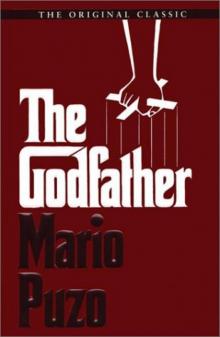 The Godfather
The Godfather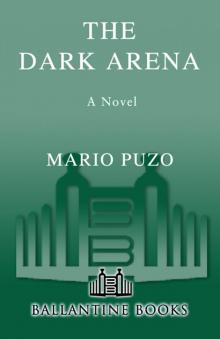 The Dark Arena
The Dark Arena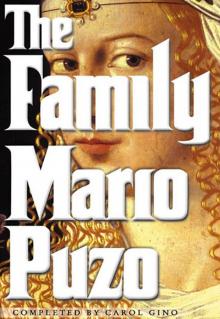 The Family
The Family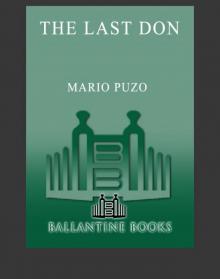 Last Don
Last Don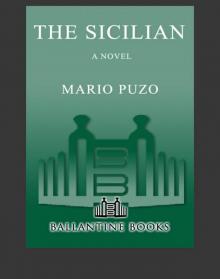 The Sicilian
The Sicilian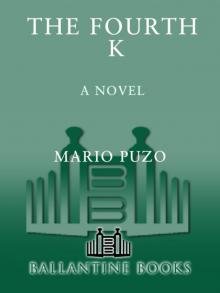 The Fourth K
The Fourth K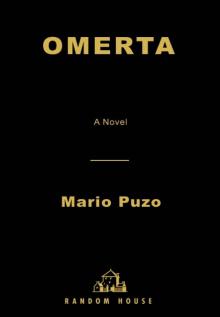 Omerta
Omerta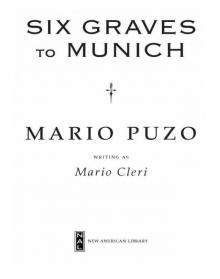 Six Graves to Munich
Six Graves to Munich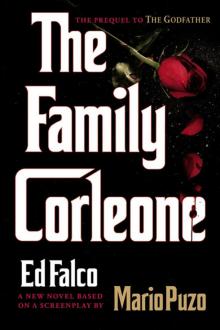 The Family Corleone
The Family Corleone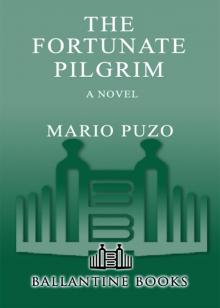 The Fortunate Pilgrim
The Fortunate Pilgrim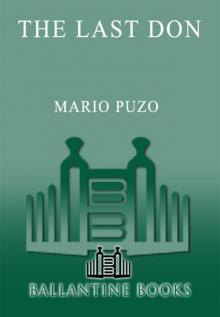 The Last Don
The Last Don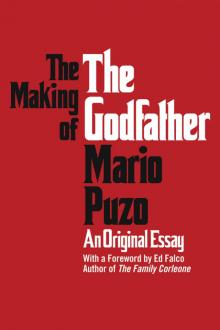 The Making of the Godfather
The Making of the Godfather Fools die
Fools die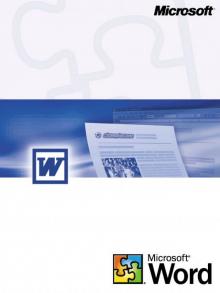 The Sicilian (v2.0)
The Sicilian (v2.0)